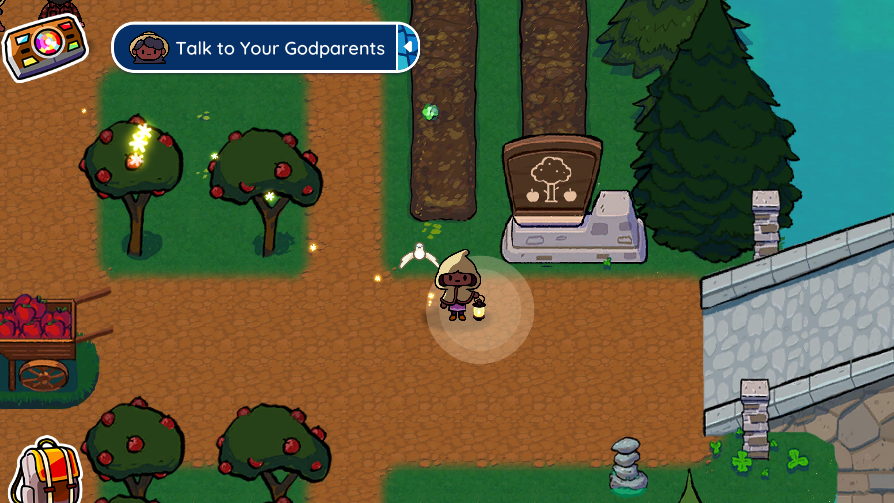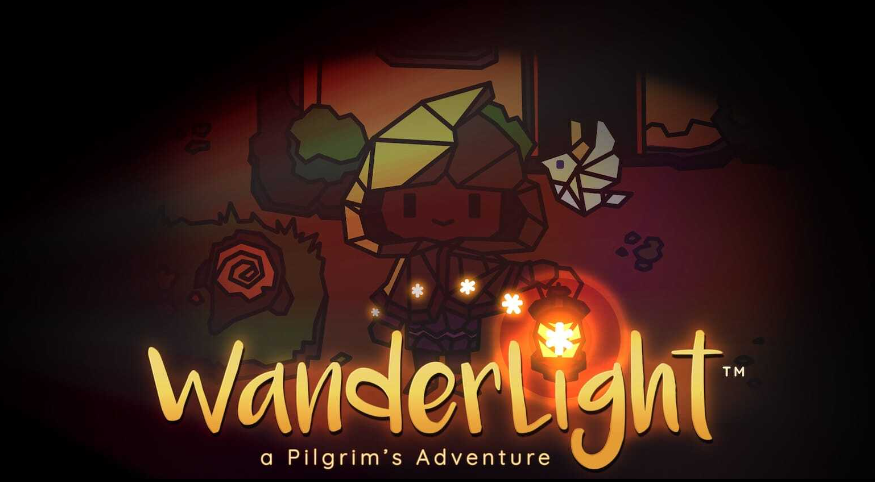Even before Zoom became the primary medium of learning for children all around the country, education in the United States was becoming more virtual by the year. In the past decade, schools have gradually shifted to using e-textbooks, online class discussion boards, and gamified learning apps to supplement or even replace traditional pen-and-paper educational media. It’s only natural that religious education should follow suit.

Enter Wanderlight, a new educational video game by Loyola Press. A role-playing game in the style of Nintendo classics such as Pokémon and The Legend of Zelda, Wanderlight is a crash course in Catholic doctrine, spirituality, and morality packaged into an engaging and delightfully designed video game.
Players of Wanderlight take on the role of a small child, known as the Pilgrim, and set off on a pilgrimage accompanied by a pet dove. Along the way the Pilgrim encounters numerous people who demonstrate Catholic beliefs and practices through both example and direct lessons, all while helping resolve conflicts in a peaceful and ethical way.
In the first of seven levels, for example, the Pilgrim encounters a child from a strange village who has crashed his bike and needs assistance. When another villager refuses to help the child, since he’s far from home and “should have known better,” the Pilgrim is prompted by a local nun to bring him to the church for help, after which she tells the Pilgrim the story of the Good Samaritan. Later in the level the Pilgrim also encounters St. Joseph, witnesses the baptism of a baby, helps set up a nativity scene, and learns the Lord’s Prayer.
Although it gradually increases in difficulty, the game features mechanics that make it possible for children of all ages and skill levels to progress through to the end. If the player begins to lose their way in the large, lush towns that make up the game’s levels, they’re gently pointed in the right direction by a trail of twinkling lights that grow stronger as the player learns from each encounter.
Even small children who’ve yet to master reading will be able to follow along: Every line of dialogue is clearly voice-acted, and the player is prompted to answer questions with (adorable) animated emoticons rather than “Yes” or “No” responses.

Which brings us to the art: Wanderlight is gorgeous. Echoing the 2D style of early Pokémon games, each town is designed with just enough detail to give it its own unmistakable flavor, from the quaint but bustling City to the cliffside Forest logging town. The character sprites are simple yet distinctive and appear to never repeat themselves, as non-player characters often do in other video games. And on particularly momentous occasions in the narrative, the player is treated to a vignette of wordless cut scenes that feel like they’ve come straight from a children’s picture book.
Wanderlight does an excellent job of filling the game with an enormous array of topics in religious education without ever feeling overwhelming. Although each level is primarily centered around one of the seven sacraments, the narrative also finds room to teach just about everything else a child might be expected to learn in a religious education class: Characters lead the Pilgrim in various prayers all throughout the game; scriptural stories are re-enacted as conflicts for the player to solve; saints, priests, and nuns serve as guides along the Pilgrim’s journey; traditional practices such as building the nativity scene are presented in puzzles and mini-games; and faith and the other virtues are emphasized whenever the Pilgrim faces a conflict or obstacle.

The game is designed for people of all ages who want to learn more about the Catholic faith, but it is best suited for elementary school children. Most adults or older children will probably not find Wanderlight challenging, since most of the gameplay involves simple activities such as matching games, walking throughout town gathering important items, or solving a maze. Similarly, the ethical quandaries presented are straightforward enough for a small child to learn from but may not be especially thought-provoking for more mature audiences.
With all that said, Wanderlight is just about the best in its class for its target audience. It is simple and fun enough to easily serve as a supplement to a traditional religious education class yet also so jam-packed with content that it makes a great primary resource for busy parents who want to teach their children about Catholicism in manageable bites.
The game is available for individual use on tablets (unfortunately, it is not compatible with smart phones) through a subscription in the Apple App Store and the Google Play Store. There is also a version for educators that is playable through a web browser and features an administrative reporting system so teachers can keep up with their students’ progress.
Images: Screenshots from Wanderlight (Loyola Press, 2020)













Add comment